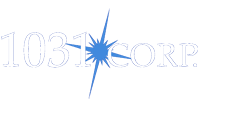Most aspects of the acquisition are handled as normal. The only real difference is that proceeds from the sale of the Exchanger’s old property are held by the Qualified Intermediary (QI).
A 1031 exchange is only applicable for properties held for business use or investment. The acquisition of a vacation/second home is very rare in a 1031 exchange and limits the Exchanger’s personal use of the property to just 14 days for each of the first two years of ownership. During the first two years of ownership, the property must also be rented to a non-related party for at least 14 days per year. While some Exchangers are tempted to apply for a second home loan to keep the interest rate down, it could jeopardize the 1031 exchange if the exchange is audited and IRS believes the Exchanger did not have intent to use the property for a qualifying use.
Unfortunately no lender fees (application fees, points, etc.) can be paid from the exchange funds. Most advisors classify these fees as loan acquisition fees and not routine property closing costs which result in a taxable event. To be safe, the Exchanger should pay these funds out-of-pocket.
While the 1031 regulations do not specifically require the changes to the Settlement Statement, the changes go a long way to properly document the exchange transaction in the unlikely event of an audit. Some of the changes a QI will ask the closing agent to make include:
There really are no exchange documents the lender needs to have for his/her file.
With written authorization from the Exchanger, the QI can provide the lender with a letter confirming the amount of funds on deposit. Simply notify the QI for the confirmation.
There are three general purposes of this clause. (1) Provide the required notification to the Seller of the replacement property of the Exchanger’s intent to complete a 1031 exchange; (2) Assign the Exchanger’s rights (but not obligations) in the Agreement of Sale to the QI; and (3) Provide the Seller with a hold harmless clause assuring him/her there is no additional cost or liability as a result of the exchange and it will not delay closing.
If the relinquished property has not yet been conveyed to a buyer, the Exchanger should pay the deposit and it can be reimbursed when he/she acquires the new property. If the relinquished property has already closed and there are exchange funds being held by the QI, the deposit monies can be paid from the exchange account provided (1) the proper exchange assignment is in the Agreement of Sale and (2) the QI has written authorization to release the funds.
Yes. Any kind of real estate qualifies under Section 1031 as long as it is held for business use or investment.
"You and your team made this transaction seamless for me! Thank you so much for your efficiency."
-- A. Y., Huntingdon Valley, PA

©2025 1031 CORP. All rights reserved. Privacy Policy